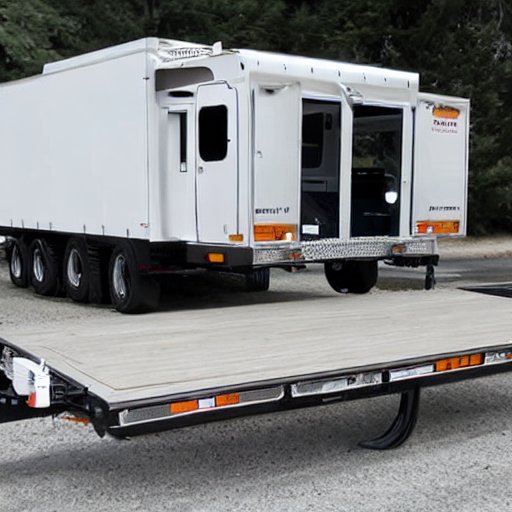Hey y’all, it’s your favorite trailer enthusiast, Matthew! Today, I’m going to explain what 7000 GVWR means on a trailer.
But before I get into the nitty-gritty details, let me share a personal story with y’all.
So, last year, I decided to upgrade my camping game by purchasing a new trailer.
I was so excited to hit the road and explore the great outdoors.
But when I went to pick up the trailer, the salesperson started talking about GVWR, tongue weight, and other technical terms that went way over my head.
I left feeling overwhelmed and confused.
That’s why I’m here to break it down for you in a fun and easy-to-understand way.
And don’t worry, I promise not to bore you with a bunch of technical jargon.
So, let’s dive in, shall we?.
What does 7000 GVWR mean on a trailer?.
GVWR stands for Gross Vehicle Weight Rating, and it’s the maximum weight a trailer can safely carry, including the weight of the trailer itself and its contents.
So, if a trailer has a GVWR of 7000 pounds, that means it can carry a maximum weight of 7000 pounds, including the weight of the trailer.
Table of Contents
Understanding GVWR and Its Importance
Now that we know what GVWR means let’s dive into why it’s essential to understand it.
When you exceed a trailer’s GVWR, you’re putting yourself and others on the road at risk.
Exceeding the GVWR can cause the trailer’s brakes, suspension, and other systems to fail, resulting in an accident.
Moreover, exceeding the GVWR can also result in legal consequences.
If you’re caught driving a trailer that’s overloaded, you can be fined or even face legal action.
So, it’s crucial to know the GVWR of your trailer and ensure you don’t exceed it.
How to Determine the GVWR of a Trailer
So, how can you determine the GVWR of your trailer? The GVWR is typically listed on the trailer’s identification plate, which is usually located on the tongue or frame of the trailer.
You can also find the GVWR in the owner’s manual or by contacting the manufacturer.
It’s essential to note that the GVWR is not a suggestion or a maximum weight limit that you can push to the limit.
It’s a safety rating that you should never exceed.
My Unique Experience with GVWR
During my first camping trip with my new trailer, I decided to bring everything but the kitchen sink.
I loaded up the trailer with all my camping gear, firewood, food, and even my trusty grill.
I didn’t even consider the trailer’s GVWR, which was a mistake.
As I was driving down a winding road, I suddenly heard a loud pop, and my truck started to swerve.
The trailer’s tire had blown out, and the weight of the overloaded trailer caused it to sway dangerously.
Luckily, I was able to regain control, but it was a scary experience that I never want to repeat.
So, don’t make the same mistake I did.
Always check the GVWR before loading up your trailer with all your gear and equipment.
FAQ
1. What happens if I exceed the GVWR?
Alrighty, y’all, let’s get into some FAQs about GVWR.
Number one on the list – what happens if you exceed the GVWR? Well, let me tell you, it ain’t pretty.
When you go over the maximum weight rating, you’re putting yourself and others at risk of an accident, and you could also face some hefty fines or legal action.
And let’s be real, ain’t nobody got time for that!.
2. Can I increase the GVWR of my trailer?
Now, this is a great question, and I wish I had a magic wand to make it happen.
But unfortunately, the answer is no.
The GVWR is determined by the trailer’s design and engineering, and it’s not something you can just slap a “bigger is better” mentality onto.
So, don’t try to beef up your trailer’s GVWR or you could be putting yourself and others in danger.
3. What’s the difference between GVWR and payload capacity?
Good question, my friend.
The payload capacity is the weight that a trailer can carry in addition to the weight of the trailer itself.
So, if your trailer has a payload capacity of 1000 pounds and weighs 2000 pounds empty, you can safely carry up to 1000 pounds of gear and equipment.
GVWR, on the other hand, includes the weight of the trailer and its contents, so it’s the maximum weight the trailer can safely carry.
My Conclusion
So, there you have it, folks.
The ultimate guide to understanding what 7000 GVWR means on a trailer.
Don’t make the same mistake I did and overload your trailer, or you could end up in a sticky situation.
Always check the GVWR before hitting the road, and remember, safety first!.
